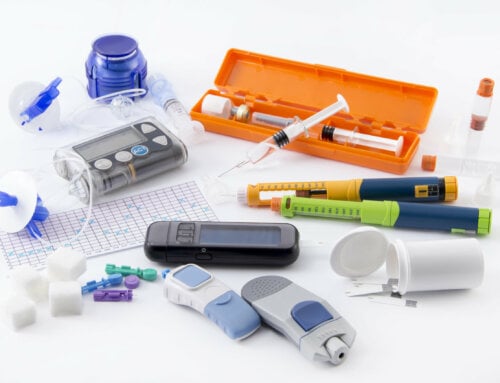
Until now, the standard screening test for diagnosing diabetic kidney disease has been to check the level of albumin in the urine. Now, however, a new indicator may be setting the bar higher for improved diagnosis. A new study suggests that earlier diagnosis for diabetic kidney disease may be possible through the analysis of the blood’s uric acid levels.2 Elevated levels of uric acid may be an indicator of kidney disease.
The study, led by Dr. Elizabeth T. Rosolowsky at the Joslin Diabetes Center in Boston, found that the kidney function for people with Type 1 diabetes was directly related to the level of uric acid in the bloodstream. As the level of uric acid increased, the level of kidney function decreased. Scientists on the study further speculated that reducing the concentration of uric acid in the bloodstream may have the effect of warding off potential kidney damage. Such results could be achieved through the use of medications or altering the diet to include less protein. Further studies are being pursued to determine whether reducing levels of uric acid does indeed have a positive effect on kidney function.
In the meantime, there are many things that people with diabetes can do to keep their kidneys as healthy as possible. The most important is to control the diabetes so that further damage is not caused. Controlling blood pressure is also important, as is keeping the urinary system in top shape. For further information about kidney damage and diabetes, speak with your health care provider.
[1] http://www.kidney.org/atoz/atozItem.cfm?id=37
[2] http://www.washingtonpost.com/wp-dyn/content/article/2008/04/04/AR2008040403153.html






How many ounces of protein per day is safe for a diabetic with slightly elevated kidney numbers? How do you convert grams of protein into ounces? My mother will not consult with a dietician and we are trying to help her. Please advise. Thank you.